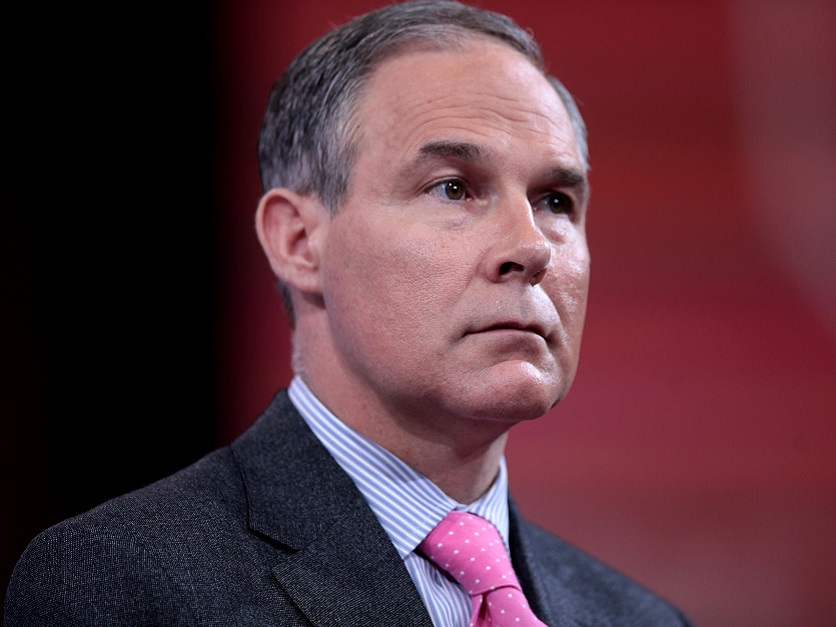WASHINGTON, March 15, 2017 – Renewable fuels groups say that the Trump administration’s decision to revisit fuel economy standards will give them a chance to tout the value of their low-carbon, high-octane fuel.
The Renewable Fuels Association and the American Coalition for Ethanol were quick to praise President Trump’s decision – announced today in Detroit – to reopen EPA’s midterm evaluation of the Corporate Average Fuel Economy (CAFE) standards for cars and light-duty trucks for model years 2022-2025. Just a week before Trump was sworn in, then-EPA Administrator Gina McCarthy completed that evaluation 18 months ahead of schedule.
McCarthy had reaffirmed the CAFE-Greenhouse Gas standards, which would require “the equivalent of 54.5 mpg for cars and light-duty trucks by Model Year 2025,” EPA noted. The EPA’s new administrator, Scott Pruitt, feels the standards may be unrealistic.
“These standards are costly for automakers and the American people,” Pruitt said in a news release. “We will work with our partners at (the Department of Transportation) to take a fresh look to determine if this approach is realistic. This thorough review will help ensure that this national program is good for consumers and good for the environment.”
RFA President and CEO Bob Dinneen said the Obama administration’s “cursory review” of the standards, initially adopted in 2012, did not allow for full consideration of “our comments, or the comments of other stakeholders.”
“Today’s actions allow the opportunity for EPA to slow down, remove politics from the process, and take a more comprehensive approach to fuel economy standards,” Dinneen said. “High-octane, low-carbon fuels can play a significant role in helping to meet fuel economy targets in the future. That is an omission that must be addressed moving forward if future vehicles can in fact help us address climate change without backsliding on other critical air quality and public health priorities.”
Did you know Agri-Pulse subscribers get our Daily Harvest email and Daybreak audio Monday through Friday mornings, a 16-page newsletter on Wednesdays, and access to premium content on our ag and rural policy website? Sign up for your four-week free trial Agri-Pulse subscription.
ACE Executive Vice President Brian Jennings called the announcement “good news because reconsideration of the 2022-2025 standards will enable us to emphasize the need for EPA to allow high-octane, high-ethanol blends to be used in meeting future efficiency standards.”
“Now that the review of (model year) 2022-2025 standards will return to the original schedule, we will also be able to make the case that EPA and (the National Highway Traffic Safety Administration) need to provide meaningful incentives for flexible fuel vehicles (FFVs) and engines designed to operate most efficiently on high-octane, high-ethanol blends,” Jennings said. “Currently, the standards are biased in favor of electric vehicles and ignore the role that FFVs and engines optimized to run on blends in the range of E25-40 can play in meeting fuel economy and GHG reduction goals.”
Environmental groups were critical of the move. Jason Mathers, supply chain director for the Environmental Defense Fund’s Corporate Partnerships program, wrote on his blog that “to remain competitive in a global market increasingly dominated by China, (automakers) must invest in cleaner-running cars – period.”
Mathers said EPA’s evaluation was not rushed, but was an “exhaustive technical review” that found the automotive industry can meet the 2022-2025 standards at lower costs than predicted than when they were finalized in 2012.
#30
For more news, go to www.Agri-Pulse.com.


